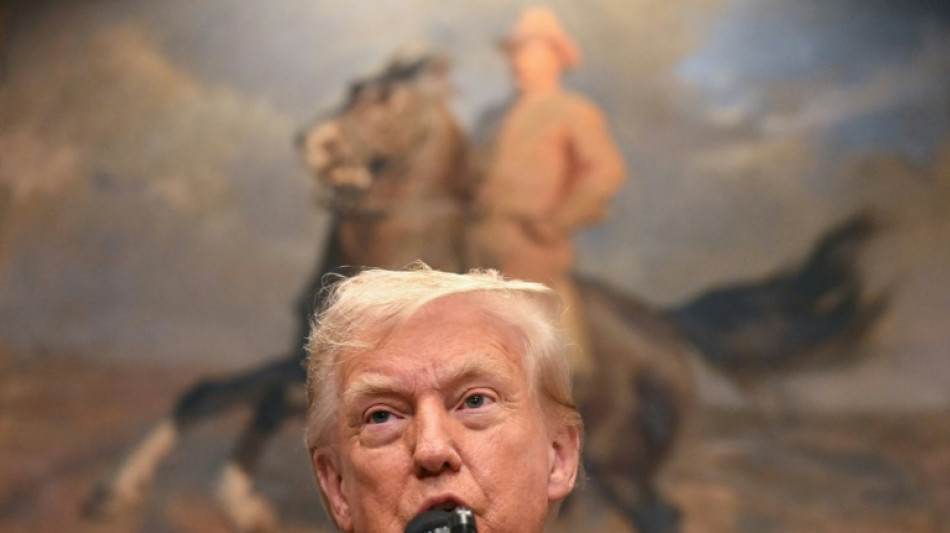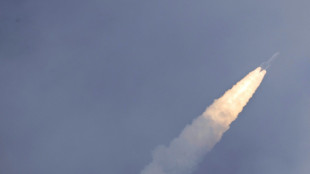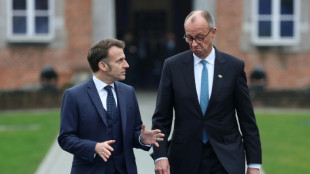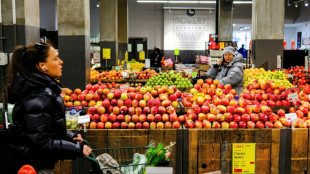

Trump announces new tariffs as deadline nears
US President Donald Trump imposed new tariffs to punish or favor major trading partners Wednesday, as governments raced to strike deals with Washington less than 24 hours before an August 1 deadline.
South Korea squeezed in at the last moment, securing agreement on a 15 percent tariff for exports to the United States -- significantly below the 25 percent that Trump had earlier threatened to introduce.
But Trump also announced crippling 50 percent tariffs on Brazil and a 25 percent levy on Indian exports, while warning Canada it would face trade repercussions for planning to recognize a Palestinian state.
The 15 percent rate on Seoul -- Washington's key security ally -- was equivalent to levies determined from US trade deals with Japan and the European Union.
An additional unspecified "large sum of money" will be invested by South Korea in the United States, the American leader said.
Seoul's presidential office said tariffs on automobiles -- one of Seoul's key exports -- would also stay at 15 percent.
Trump hit Brazil with high tariffs as well as sanctions against the judge overseeing a trial of his far-right ally Jair Bolsonaro, who is accused of attempting a coup in Latin America's biggest economy.
But he delayed its implementation from Friday to August 6, and crucially exempted many products from the prohibitive levy, including orange juice, civil aircraft, iron ore and some energy products.
- Canada trade threat -
He had threatened to wield US economic might to punish Brazil -- and its Supreme Court Justice Alexandre de Moraes, in particular -- for what he has termed a "witch hunt" against former president Bolsonaro.
Brazilian President Luiz Inacio Lula da Silva hit said he would defend "the sovereignty of the Brazilian people in the face of measures announced by the president of the United States."
Among Trump's latest announcements were a 25 percent duty on Indian goods to begin Friday -- slightly lower than previously threatened -- after talks between Washington and New Delhi failed to bring about a trade pact.
India would face an unspecified "penalty" over purchases of Russian weapons and energy as well, Trump said.
"I don't care what India does with Russia. They can take their dead economies down together, for all I care," Trump wrote on his Truth Social platform.
"We have done very little business with India, their Tariffs are too high, among the highest in the World," he added.
Canada's trade relations with the United States also came under threat after Prime Minister Mark Carney announced plans to recognize a Palestinian state at the UN General Assembly in September.
"Wow! Canada has just announced that it is backing statehood for Palestine," the US president wrote on his Truth Social platform. "That will make it very hard for us to make a Trade Deal with them."
- 'Big day for America' -
He also signed an order Wednesday to impose previously threatened 50 percent tariffs on certain copper products and end a tariff exemption for low-value shipments from abroad.
It left out products like copper ores, concentrates and cathodes, bringing some relief to industry.
As Trump's deal deadline neared, Commerce Secretary Howard Lutnick told Fox News that Washington had struck trade deals with Cambodia and Thailand, but provided no details of the accords.
The US tariff hikes due Friday were initially announced in April as part of a package in which Trump slapped a minimum 10 percent levy on goods from almost all trading partners -- citing unfair trade practices.
This rate was set to rise to varying levels for dozens of economies such as the European Union, Japan and others, but Washington twice postponed their implementation as financial markets gyrated.
The US leader insisted Wednesday that the August 1 deadline "will not be extended" any further.
In a Truth Social post, he vowed that this would be "a big day for America."
So far, Britain, Vietnam, Japan, Indonesia, the Philippines, the EU and South Korea have reached initial deals with Washington to secure less punishing conditions.
While the United States and China earlier slapped escalating tariffs on each other's products, both sides are working to further a truce maintaining duties at lower levels.
Although Trump has promised a surge in government revenues from his duties, economists warn that higher tariffs can fuel an uptick in inflation and weigh on economic growth. This could change consumption patterns.
Already, consumers face an overall average effective tariff rate that is the highest since the 1930s, according to a recent analysis by The Budget Lab at Yale University.
The effect on consumer prices has been limited so far. But analysts cautioned this could become more pronounced as businesses run down on existing inventory and pass on more costs to buyers.
A.Schuster--VZ


